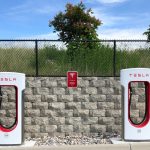The recent release of Matter 1.3 marks a significant step towards creating a more interconnected and efficient home environment. This latest update extends its compatibility to include electric vehicle (EV) chargers and various kitchen appliances, broadening the horizon for smart home technology integration. By supporting a wider range of devices, Matter 1.3 aims to enhance the functionality and convenience of smart homes, making daily routines more streamlined and user-friendly.
Updates in technology, especially in smart home ecosystems, have consistently aimed at increasing user convenience and energy efficiency. Previous iterations of the Matter protocol have laid the groundwork by ensuring interoperability among diverse smart devices within the home, focusing primarily on lighting, locks, and thermostats. The expansion to include more complex systems like EV chargers represents a natural progression in smart home technology, reflecting growing consumer investment in renewable energy solutions and automated home systems.
The progression toward integrating larger household appliances into the smart home network also mirrors the increasing consumer demand for kitchen devices that can communicate seamlessly with other home systems. With more people investing in smart kitchen technology, from refrigerators to cookers that offer programmable features and remote controls, the update to Matter 1.3 caters to a broader range of needs and lifestyles. This shift not only promises enhanced convenience but also potential improvements in energy efficiency and management.
Enhanced Device Integration
Matter 1.3’s expanded compatibility list includes not just kitchen appliances and EV chargers but also other home automation devices which were not previously supported. This broad support is designed to foster an ecosystem where all connected devices can communicate more effectively, regardless of the manufacturer, creating a more cohesive user experience. This integration supports streamlined processes and efficiency, reducing the complexities often associated with managing multiple smart devices.
Benefits for Home Automation
The introduction of Matter 1.3 with enhanced capabilities brings several concrete benefits to users of smart home technology:
- Increased interoperability makes device management more intuitive.
- Broader device support enhances routine automation possibilities.
- Improved energy efficiency through more integrated control systems.
Future Prospects of Smart Homes
Looking forward, the continuous enhancements in smart home protocols like Matter suggest a trend towards even more comprehensive and user-centric home environments. As technology evolves, future updates may introduce features that could predict user behavior and manage energy consumption even more efficiently. These developments will likely facilitate not only comfort but also considerable savings on household energy bills, marking a significant step forward in the practical application of smart home technology.
The evolution of smart home standards, particularly with updates like Matter 1.3, is poised to redefine how we interact with our living spaces. As these technologies become more embedded in our daily lives, they offer not just comfort and convenience but also a platform for sustainable living. This move towards an integrated network of smart home devices will likely influence future innovations in the industry, steering it towards more advanced, energy-efficient, and user-friendly solutions.










